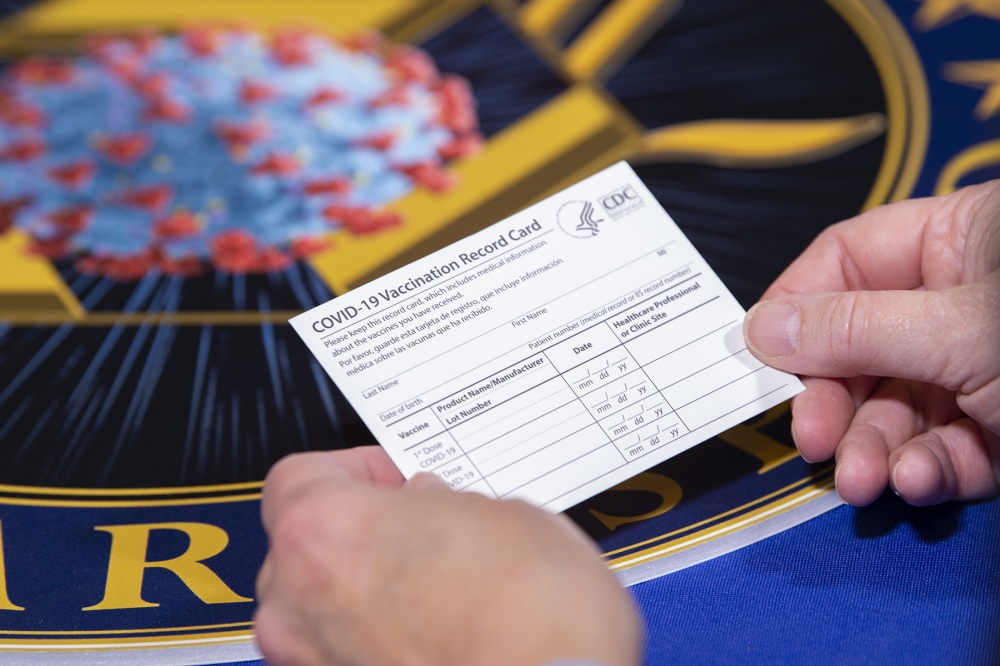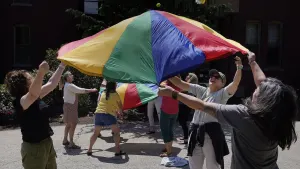More Stories
Because COVID-19 is a new disease with new vaccines, you may have questions about what happens before, during, and after your appointment to get vaccinated.
The tips below from the U.S. Centers for Disease Control and Prevention will help you know what to expect when you get vaccinated, what information your provider will give you, and resources you can use to monitor your health after you are vaccinated:
BEFORE VACCINATION
1. See if COVID-19 vaccination is recommended for you right now.
2. Learn more about the different types of COVID-19 vaccines and how they work. Learn about the nine ways the Moderna and Pfizer vaccines are similar - and different here.
3. Learn more about the benefits of getting a COVID-19 vaccination here.
4. When you go to your appointment, remember to cover your mouth and nose with a mask when you are around others, and stay at least 6 feet away from others. Here are five reasons why we can’t stop wearing a mask after getting a COVID-19 vaccine.
WHEN YOU GET VACCINATED
5. You should receive a vaccination card or printout that tells you what COVID-19 vaccine you received, the date you received it, and where you received it. Below is what it looks like:

6. You should receive a paper or electronic version of a fact sheet that tells you more about the specific COVID-19 vaccine you are being offered. Each authorized COVID-19 vaccine has its own fact sheet that contains information to help you understand the risks and benefits of receiving that specific vaccine.
AFTER VACCINATION
7. With most COVID-19 vaccines, you will need two shots in order for them to work. Get the second shot even if you have side effects after the first one, unless a vaccination provider or your doctor tells you not to get a second shot.
8. Ask your health care provider about getting started with v-safe, a free, smartphone-based tool that uses text messaging and web surveys to provide personalized health check-ins after you receive a COVID-19 vaccination. V-safe also reminds you to get your second dose if you need one. Learn more here.
9. It takes time for your body to build protection after any vaccination. COVID-19 vaccines that require two shots may not protect you until a week or two after your second shot.
SIDE EFFECTS
10. COVID-19 vaccine side effects may affect your ability to do daily activities, but they should go away in a few days. These are the most common side effects:
On the arm where you got the shot - pain and swelling. Throughout the rest of your body - fever, chills, tiredness, headache.
11. If you have pain or discomfort, talk to your doctor about taking an over-the-counter medicine, such as ibuprofen or acetaminophen. To reduce pain and discomfort where you got the shot, apply a clean, cool, wet washcloth over the area, and use or exercise your arm. And to reduce discomfort from fever drink plenty of fluids and dress lightly.
12. In most cases, discomfort from fever or pain is normal. Contact your doctor or health care provider if the redness or tenderness where you got the shot increases after 24 hours. If your side effects are worrying you or do not seem to be going away after a few days. Learn more about the COVID-19 vaccine and severe allergic reactions here.
13. Remember, side effects may feel like flu and even affect your ability to do daily activities, but they should go away in a few days.
More from News 12
1:28

5 simple steps for long-term benefits to your health and heart
1:32

8 tips for working safely during hot weather
3:31

Guide: Ways to set your child up for financial success
3:18

Guide: The importance of good sleep and how to get it

Guide: Mental health resources available in the tri-state
9:36
